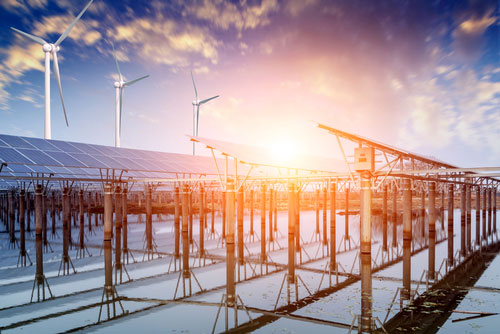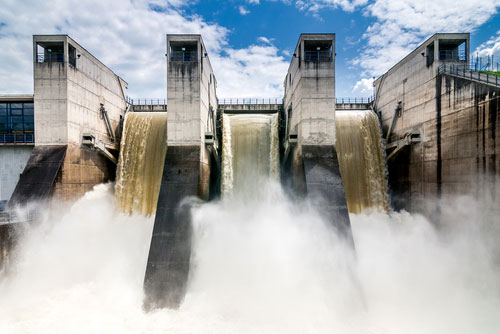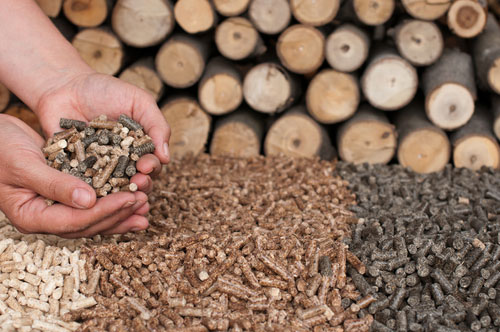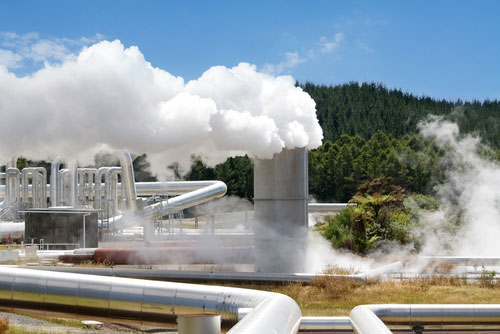Hello ? What's your name ? What grade are you in ? How are you ?
Dịch hộ mik nha
Hãy nhập câu hỏi của bạn vào đây, nếu là tài khoản VIP, bạn sẽ được ưu tiên trả lời.

Mark the letter A, B, C, or D to indicate the word whose underlined part differs from the other three in pronunciation in each of the following questions.
Question 1:A. decided B. played C. listened D. enjoyed
Question 2: A. plays B. looks C. wants D. helps
Mark the letter A,B,C, or D to indicate the word that differs from the other three in the position of primary stress in each of the following questions.
Question 3 :
A. different B. dangerous C. pollution D. plentiful
Question 4:
A. environment B. petroleum C. effectively D. fashionable
Mark the letter A, B, C, or D to indicate the correct answer to each of the following questions.
Question 5: Nuclear power ...............................in the future.
A. will replace B. replaced C. will be replaced D. replaces
Question 6: My father .............a lot last year, but this year he doesn't any more.
A. smokes B. used to smoke C. smoking D. gets used to smoke
Question 7: It's really difficult to .......................a bicycle up the hill
A. fly B. drive C. pedal D. sail
Question 8: At this time next week, we .................a test on sources of energy
A. will take B. take C. will be taking D. are taking
Question 9: ...........books are here. ..............are there.
A.Theirs / ours B. Their / our C. Theirs / our D. Their / ours
Question 10: - “Would you li ke some corn?” - “______.”
A. No, thanks. I’m full B. Ok. I don’t li ke corn
C. All right D. Yes, I would
Question 11: Van Cao is the……………of Vietnam’s national anthem Tien Quan Ca.
A. singer B. actor C. dancer D. composer
Question 12: I’d li ke ………….. of cooking oil.
A. a tube B. a bottle C. a bar D. a can
Mark the letter A, B, C, or D to indicate the word(s) CLOSEST in meaning to the underlinded word(s) in each of the following questions.
Question 13:Wind power is abundant
A.plentiful B.convinient C.unlimited D.enormous
Question 14: There have been many interesting transport inventions
A.strange B.new creations C.popular D.peaceful
Mark the letter A, B, C, or D to indicate the word(s) OPPOSITE in meaning to the underlinded word(s) in each of the following questions.
15: Nuclear power is expensive
A.limited B.renevable C.undangerous D.cheap
16:Will we travel in driverless cars in the future
A.easy B.driverful C.different D.friendly
17: Red minibuses often provide more convenient transport for rides.
A. suitable B. unpleasant C. good D. available

.....is the most expensive city in the world I think it is Tokyo
A. which B.where C.why D.how

Which is the most expensive city in the world
mk nghĩ vậy !!

Renewable energies (or renewables) are ways to generate energy from (theoreally) unlimited natural resources. These resources are either available with no time limit or replenish more quickly than the rate at which they are consumed.
Renewable energies are generally spoken of as opposed to fossil fuel energies. The fossil fuels’ stocks are limited and non-renewable in the human timescale. The most known examples of these resources are coal, oil or natural gas. On the contrary, renewable energies are produced from renewable sources. Here, we’re talking about energy coming from solar rays, wind or water cycles – all theoreally unlimited on a human scale time.
Renewable energies are also often referred to as “green energies” or “clean energies”. Still, this doesn’t mean that these energies aren’t harmful to the environment and have zero impact. Nonetheless, they have a low environmental impact compared to fossil fuels. That’s why they’re increasingly becoming important elements in companies’ CSR strategies in terms of sustainable development.
There are several types of renewable energies that are produced by different sources such as the sun, wind or water. In fact, these renewables’ power consumption has been growing over the last year. They have provided 8% of the world’s electricity in 2017 and they now cover 1/3 of the power mix in Europe. At the same time, the energy grid gets 1/4 of the total energy in China and 1/6 in the United States, India, and Japan. Let’s learn more about them below.
1 – Solar Energy

This type of renewable energy comes directly from the capture of solar radiation. Here, the solar radiation is absorbed by specific sensors and rebroadcasted following 2 possible operation modes:
Examples of Solar Energy in the World
It’s estimated that in 2017 1,6% of the worldwide generated energy came from solar sources. At the same time, solar power also contributed to 20% of the total energy growth in this same year. Some of the most known sources of solar energy are:
Is Solar Energy Renewable or Nonrenewable?
Solar energy is inexhaustible in the sense that it will cease once the solar system’s star – the sun – dies. However, many people wonder if, from a perspective of human’s being able to capture and use solar energy in the long-term, whether solar energy is renewable or nonrenewable.
[Full answer available soon.]
2 – Windpower, a Renewable Energy
Wind power is another renewable energy. Here, the wind’s kine energy makes turbines spin and creates a mechanical movement. Afterward, a generator transforms this mechanical energy into electricity. There are several types of wind renewable energies: onshore wind turbines, off-shore wind turbines and even floating wind turbines. But the operating principles are basically the same for all these types of wind-generated energy.
Examples of Wind Power in the World
Wind power continues has also been growing, In fact, it provided 4.4% of global power generation in 2017. The highest installed wind capacity belongs to China (164GW). At the same time, in the EU, wind power provides 15% or more of the energy generated in several countries such as Germany, Portugal or Lithuania. Some of the most known sources of wind power energy are:
3 – Hydro-Electric Power

Hydro-electric power consists in the transformation of the kine energy of the water (from rivers, dams, marine currents or tides) into mechanical energy by turbines.
Examples of hydro-electric power in the world
4- Biomass

Biomass is made up of organic materials from plants or animals that contain stored energy. The combustion of these natural materials produces renewable energy. Some examples of generating energy from biomass are:
Related content:
Examples of Biomass Energy in the World
Some of the most known biomass power plants in the world are:
5- Geothermal Power as a Renewable Energy

The Earth generates and stores geothermal energy. In other words, radioactive materials decaying inside the Earth are emitting energy. Electricity can be created using directly or indirectly this energy, depending on the technology implemented. There are 3 main ways to use geothermal energy:

I Viết câu hỏi đuôi
1. I'm unable to solve that problem alone, aren't I ?
2. Dharavi used to be a fishing village with only three thousand people, didn't he/she ?
3. Her brother has lived in Jakarta for more than ten years, hasn't he ?
4. These houses cannot provide enough accommodation, can they ?
5. There were nearly one million people living in this city in 2010, weren't there ?
6. You and I shouldn't go to those streets when it turns dark, should we ?
II. Give the correct form of the words given to complete the sentences:
1. In most big cities, there are many wealthy people, but poverty is still a problem. (poor)
2. Life must be difficult in the slums. (difficulty)
3. .Flight 325 to Ho Chi Minh City is now boarding at the gate 3. (fly)
4. The little looks healthy enough. (health)
5. Farmers need more land than town people. (much)
1. I'm unable to solve that problem alone,....aren't I.......................?
2. Dharavi used to be a fishing village with only three thousand people,...didn't it................?
3. Her brother has lived in Jakarta for more than ten years,.hasn't he..........................?
4. These houses cannot provide enough accommodation,....can they.........................?
5. There were nearly one million people living in this city in 2010,....weren't there.......................?
6. You and I shouldn't go to those streets when it turns dark,...should we......................?
II. Give the correct form of the words given to complete the sentences:
1. In most big cities, there are many wealthy people, but..poverty..........is still a problem. (poor)
2. Life must be....difficult......in the slums. (difficulty)
3. ....Flight...325 to Ho Chi Minh City is now boarding at the gate 3. (fly)
4. The little looks.....healthy.....................enough. (health)
5. Farmers need.....more........................land than town people. (much)

Although it is not a rush hour, there is a lot of traffic now.
→ It is ...not a rush hour. However, there is a lot of traffic now...
2. Although he was not selected as the winner, he was still happy.
→ Despite...the fact that he was not selected as the winner, he was still happy...
3. We often cycled to school two years ago. → We used ...to cycle to school 2 years ago...
Although it is not a rush hour, there is a lot of traffic now.
→ It is not a rush hour ; however ,there is a lot of traffic now.
2. Although he was not selected as the winner, he was still happy.
→ Despite being not selected as the winner, he was still happy.
3. We often cycled to school two years ago.
→ We used to cycle to school two years ago

fill in each blank with"more/less/fewer"
1.february has........fewer .days than january.
2.overpopulation is causing.....more.....problems than the countryside.
3.big cities sufer .....more....pollution than the country side.
4.a teacher needss....less.......calories than a farmer.
5.a healthy child requires......less.....care than a sick one.

I. Choose the best option to complete the sentence: Chọn 1 đáp án đúng nhất để hoàn thành mỗi câu sau
1. I have 8 books and you have 12 books. So you have..............books than me.
A. fewer B. less C. more
2. She has...............friends than me.
A. fewer B. less C. most
3. Nga has ............money than Huong.
A. less B. little C. few
4. Ngan s tea, ................?
A. does she B. doesn’t she C.sin’t she
5. Nam didn’t come there, ...............?
A. did he B. did Nam C. didn’t he
6. Let’s play football this afternoon, ..........?
*Đáp án câu 6 ?
II. Complete the sentences: Hoàn thành các câu hỏi đuôi sau:
1. They don’t play football well, do they ?
2. Open the door, don't you ?
3. Nam didn’t go to school late, did Nam ?
4. Nga is watching TV now, is Nga ?
XIn chào!
Bạn tên là gì?
Bạn học lớp mấy?
Bạn bao nhiêu tuổi?
Hello ? What's your name ? What grade are you in ? How are you ?
Dịch :
Xin chào ? Bạn tên là gì ? Bạn học lớp mấy ? Bạn khỏe không ?